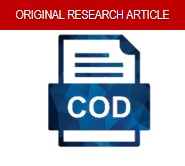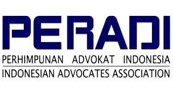Restorative Yet Incomplete
The Dilemma of Progressive Legal Reform in Indonesia
DOI:
https://doi.org/10.46924/jihk.v7i2.328Keywords:
Restorative Justice, Legal Fragmentation, Progressive Law, Criminal Justice ReformAbstract
Restorative justice represents an alternative approach in the criminal justice system that prioritizes the restoration of relationships among offenders, victims, and the community. In Indonesia, its implementation remains limited and has yet to be fully integrated into the broader justice framework. This study aims to examine the application of restorative justice principles across various levels of law enforcement, identify normative, institutional, and sociological barriers, and propose strategic recommendations for national legal reform. Employing a juridical-normative and empirical methodology—through document analysis and semi-structured interviews—this research reveals that the application of restorative justice remains fragmented. Contributing factors include an underdeveloped legal foundation, inadequate institutional capacity, and cultural resistance within communities. The study concludes that comprehensive national regulations are essential to institutionalize restorative justice principles, thereby fostering a more humane, participatory, and restorative criminal justice system that moves beyond retributive paradigms.
Downloads
References
Journals
Abimanyu, Rizqullah, and Fanny Rifkat Mukarramah. “Analisis Pelaksanaan Restorative Justice Di Kelurahan Bedoyo Gunung Kidul Dalam Rangka Pemenuhan Keadilan Bagi Masyarakat Desa.” Binamulia Hukum 12, no. 1 (2023): 25–38. https://doi.org/10.37893/jbh.v12i1.449.
Akbar, Muhammad Fatahillah. “Pembaharuan Keadilan Restoratif Dalam Sistem Peradilan Pidana Indonesia.” Masalah-Masalah Hukum 51, no. 2 (2022): 199–208. https://doi.org/10.14710/mmh.51.2.2022.199-208.
Amdani, Yusi. “Konsep Restorative Justice Dalam Penyelesaian Perkara Tindak Pidana Pencurian Oleh Anak Berbasis Hukum Islam Dan Adat Aceh.” Al-’Adalah 13, no. 1 (2017): 81–76. https://doi.org/10.24042/adalah.v13i1.1130.
Anwar, Iryana, Sapti Prihatmini, Ainul Azizah, and I Gede Widhiana Suarda. “Restorative Approaches to Managing Children in Conflict with the Law.” Jurnal Ilmu Hukum Kyadiren 6, no. 1 (2024): 37–49. https://doi.org/10.46924/jihk.v6i1.193.
Arsyad, Yusna, Fence M. Wantu, and Dian Ekawaty Ismail. “Menata Kembali Prinsip Restorative Justice Dalam Sistem Peradilan Pidana Indonesia: Sebuah Gagasan Mencapai Idealitas.” Ilmu Hukum Prima 6, no. 2 (2023): 253–65. https://doi.org/10.34012/jihp.v6i2.4438.
Faisal, Rizki, Pristika Handayani, and Indra Sakti. “Analisis Implementasi Restorative Justice Dalam Penyelesaian Kasus Pencurian Ringan Di Kota Bandung.” Jurnal Petita 6, no. 2 (2024): 70–74. https://doi.org/10.33373/pta.v6i2.7527.
Farhan, Ahmad. “Penerapan Restorative Justice Dalam Tindak Pidana Pencurian Pada Tahap Pemeriksaan Di Persidangan: Studi Kasus Putusan Nomor 28/Pid.B/2022/Pn.Lbb.” Hukum Responsif 14, no. 1 (2023): 38–51. https://doi.org/10.33603/responsif.v14i1.8383.
Irabiah, Irabiah, Beni Suswanto, and Muhammad Ali Alala Mafing. “Penerapan Restorative Justice Pada Tingkat Penuntutan: Studi Kasus Di Kejaksaan Negeri Kotamobagu.” Perspektif: Kajian Masalah Hukum Dan Pembangunan 27, no. 2 (2022): 131–38. https://doi.org/10.30742/perspektif.v27i2.828.
Kristiyadi, Kristiyadi, and Vincentius Patria Setyawan. “Keadilan Restoratif Dan Mediasi Penal Dalam Tindak Pidana Ringan.” Jurnal Kepastian Hukum Dan Keadilan 4, no. 1 (2022): 17–30. https://doi.org/10.32502/khk.v4i1.4622.
Nur Rochaeti. “Implementasi Keadilan Restoratif Dan Pluralisme Hukum Dalam Sistem Peradilan Pidana Anak Di Indonesia.” Masalah-Masalah Hukum, 2015.
Rich, Johannes Immanuel, and Benny Djaja. “Penerapan Prinsip Restoratif Justice Terhadap Pertimbangan Hakim Dalam Putusan Lepas Dari Segala Tuntutan Hukum: Studi Kasus Putusan Nomor. 28/Pid.B/2022/PN.LBB.” Unes Law Review 6, no. 4 (2024): 9803–13. https://doi.org/10.31933/unesrev.v6i4.1927.
Risal, Muhammad Chaerul. “Analisis Kritis Terhadap Implementasi Restorative Justice Dalam Sistem Peradilan Pidana: Tantangan Dan Peluang.” Jurnal Al Tasyri’iyyah 3, no. 1 (2023): 55–70. https://doi.org/10.24252/jat.vi.41238.
Rochaeti, Nur, and Rahmi Dwi Sutanti. “Kontribusi Peradilan Adat Dan Keadilan Restoratif Dalam Pembaruan Hukum Pidana Di Indonesia.” Masalah-Masalah Hukum 47, no. 3 (2018): 198–214. https://doi.org/10.14710/mmh.47.3.2018.198-214.
Satria, Hariman. “Restorative Justice: Paradigma Baru Peradilan Pidana.” Jurnal Media Hukum 25, no. 1 (2018): 111–23. https://doi.org/10.18196/jmh.2018.0107.111-123.
Sihombing, Lasmin Alfies. “Restorative Justice, Kejahatan, Hukuman, Dan Peradilan Pidana: Sebuah Analisis Kesejarahan, Peluang Dan Tantangan.” Unes Law Review 6, no. 3 (2024): 8902–11. https://doi.org/10.31933/unesrev.v6i3.1777.
Sulistyarini, Dyah Ayu, Deni Setya Bagus Yuherawan, and Subaidah Ratna Juita. “Kebijakan Restorative Justice Dalam Penyelesaian Perkara Pidana Di Pengadila.” Hukum Dan Masyarakat Madani 13, no. 2 (2023): 413–22. https://doi.org/10.26623/humani.v13i2.7991.
Downloads
Published
Issue
Section
License
Copyright (c) 2025 Michael Deo Leorenzius Sihole

This work is licensed under a Creative Commons Attribution 4.0 International License.
Authors who publish with this journal agree to the following terms:
- Copyright on any article is retained by the author(s).
- The author grants the journal, the right of first publication with the work simultaneously licensed under a Creative Commons Attribution License that allows others to share the work with an acknowledgment of the work’s authorship and initial publication in this journal.
- Authors are able to enter into separate, additional contractual arrangements for the non-exclusive distribution of the journal’s published version of the work (e.g., post it to an institutional repository or publish it in a book), with an acknowledgment of its initial publication in this journal.
- Authors are permitted and encouraged to post their work online (e.g., in institutional repositories or on their website) prior to and during the submission process, as it can lead to productive exchanges, as well as earlier and greater citation of published work.
- The article and any associated published material is distributed under the Creative Commons Attribution 4.0 International License



 Sinta ID:
Sinta ID: 


















